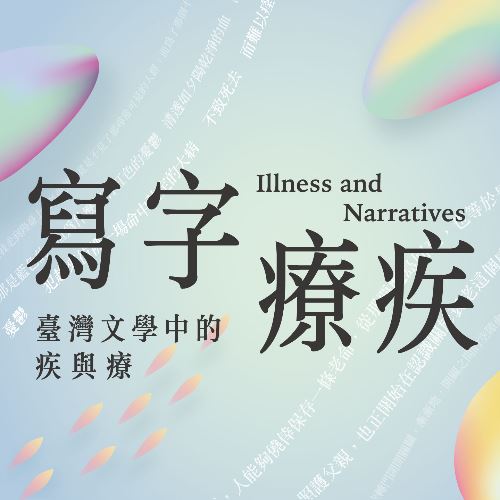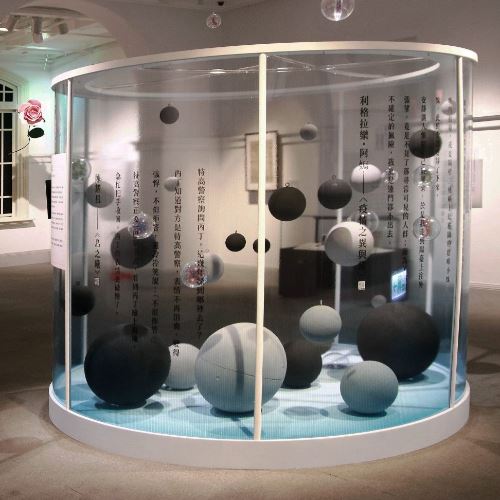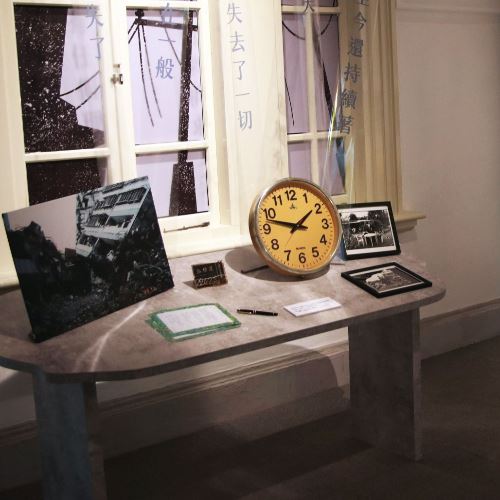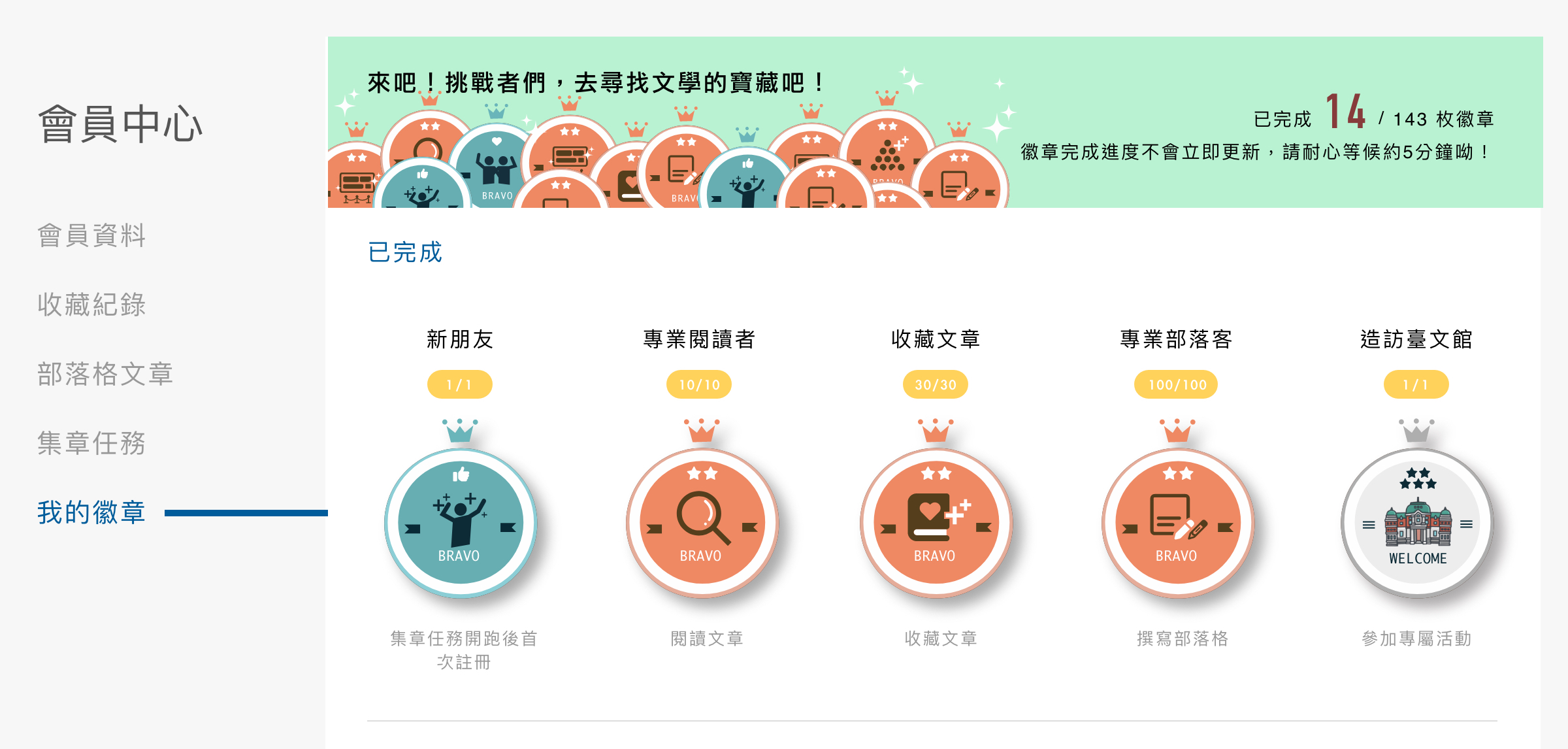►Perceiving Insanity as the Norm ►Depression – In Search of another Reality
►Writing as Therapy to Quell the Inner Tempest
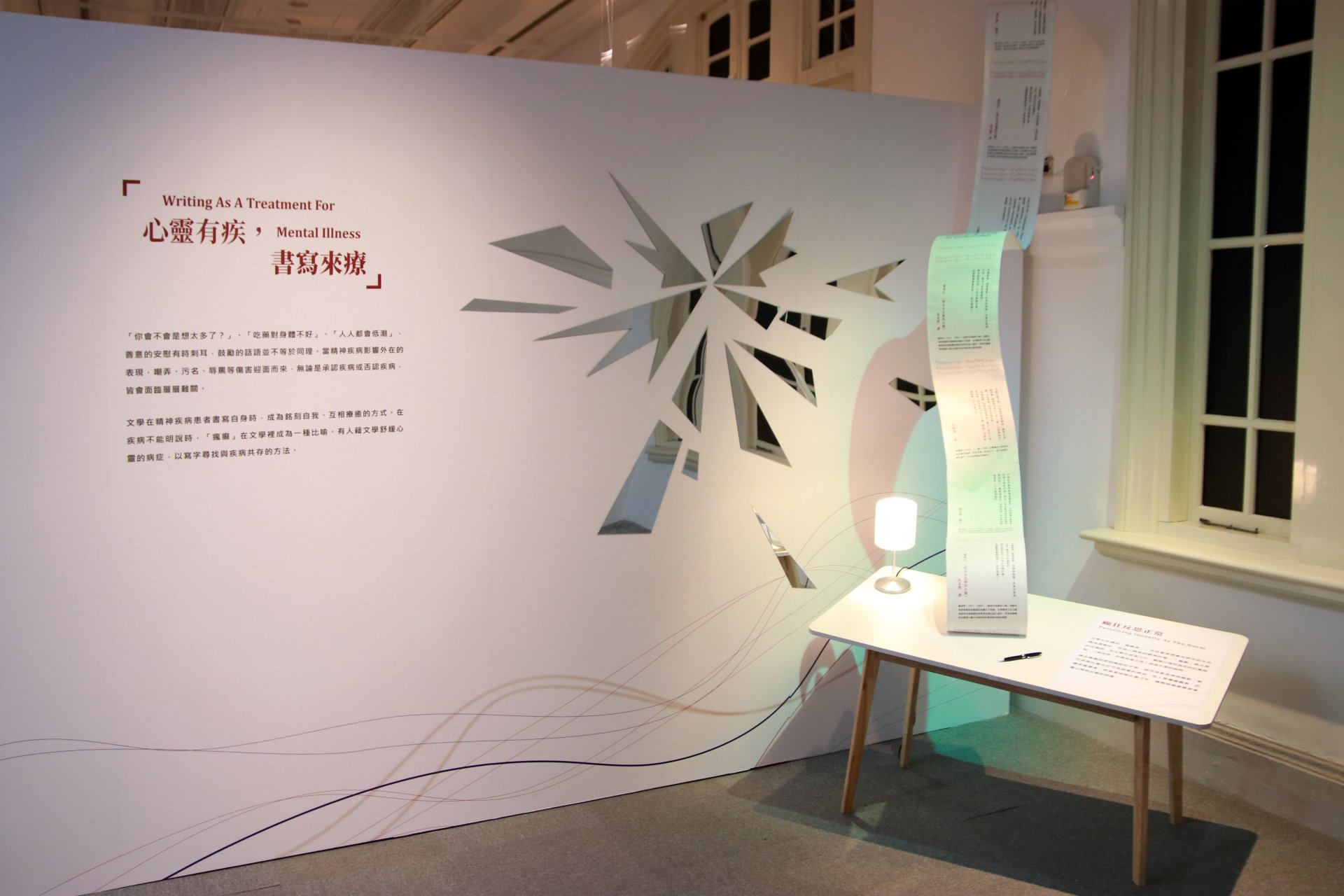
"You probably think too much;" "medicine is not good for you;" "people feel low once in a while. " Sometimes comfort of good intention can sound harsh; encouraging words might not be the same as empathy. When mental illness influences a person's external behavior, there would be mocking, stigmatization, insults, and verbal abuse. Either acknowledging one's disease or denying it, people will always face obstacles.
Literary writing of the self is a way of validating oneself and providing comfort for patients with mental health problems. "Insanity" has been a figure of speech in literature when the disease cannot be mentioned directly. Some try to alleviate their mental health problems through literature and look for a way to co-exist with the diseases through writing.

Perceiving Insanity as the Norm
The "madman" in literature can often see through the unreasonableness or suppression in reality and thus becomes mentally disturbed. "Insanity" is an antonym of normalcy; in literature, it acts as a blade that cuts through the social restrictions disguised in rationality. People or the world—which one should serve as the standards for normalcy? This question is constantly raised in literature.
In the past, insanity was attributed to being possessed, being cursed or being punished by deities. In fact, these perceptions have continued to this day. People are afraid of and mock insane people. Patients with mental illnesses are ostracized by society, preventing those suffering psychological problems from receiving proper care.
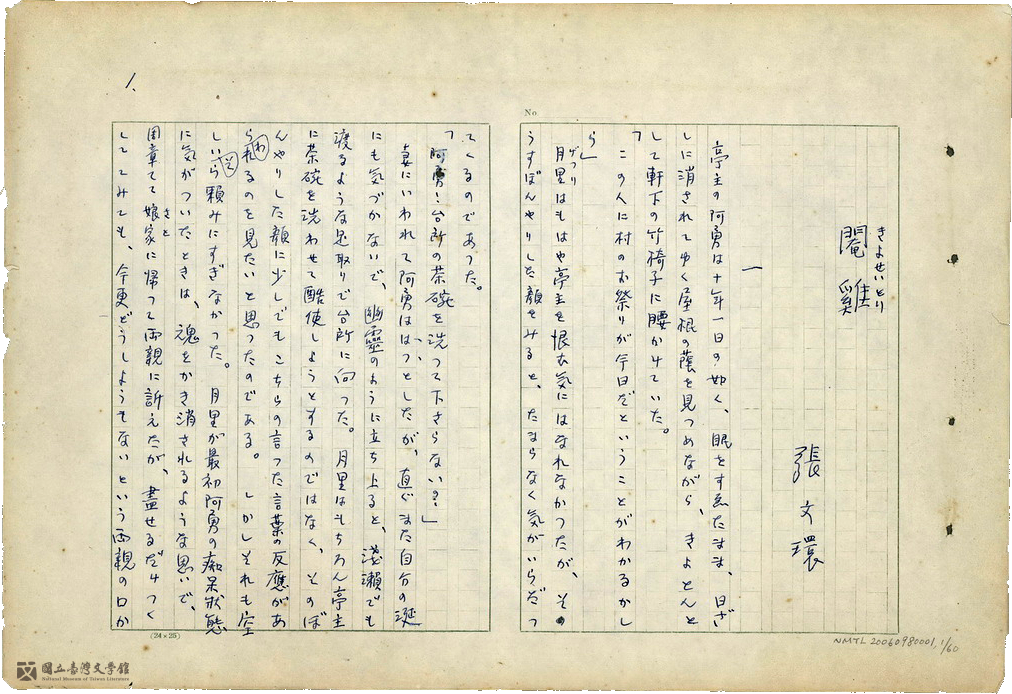
✺ "The Capon"
"The Capon," written by Chang Wen-huan (1909-1978), tells the tale of a female protagonist (Yueli) marrying a man (A-yun) under financial strain. However, after the decline of his family, Yueli's husband goes insane. Yueli, isolated, strives to pursue the life she wants, but ends up committing suicide with her lover due to pressure from the outside world.(Donated by Chang Yu-yuan/ Kept in National Museum of Taiwan Literature)

✺ No. 3, Vol. 3, Mazu (No. 15)
This issue was published in 1937. It includes "Secrets of Ms. Liu" by Nishikawa Mitsuru (1908-1999). In this writing, the superintendent of a psychiatric hospital tells the story of a young man who got involved in a horrifying incident while practicing alchemy; the young man was sent to the psychiatric hospital as a mad person and wrote down proof that he had never been crazy before he died.(Donated by Ryokuin Shobo, Japan/ Kept in National Museum of Taiwan Literature)
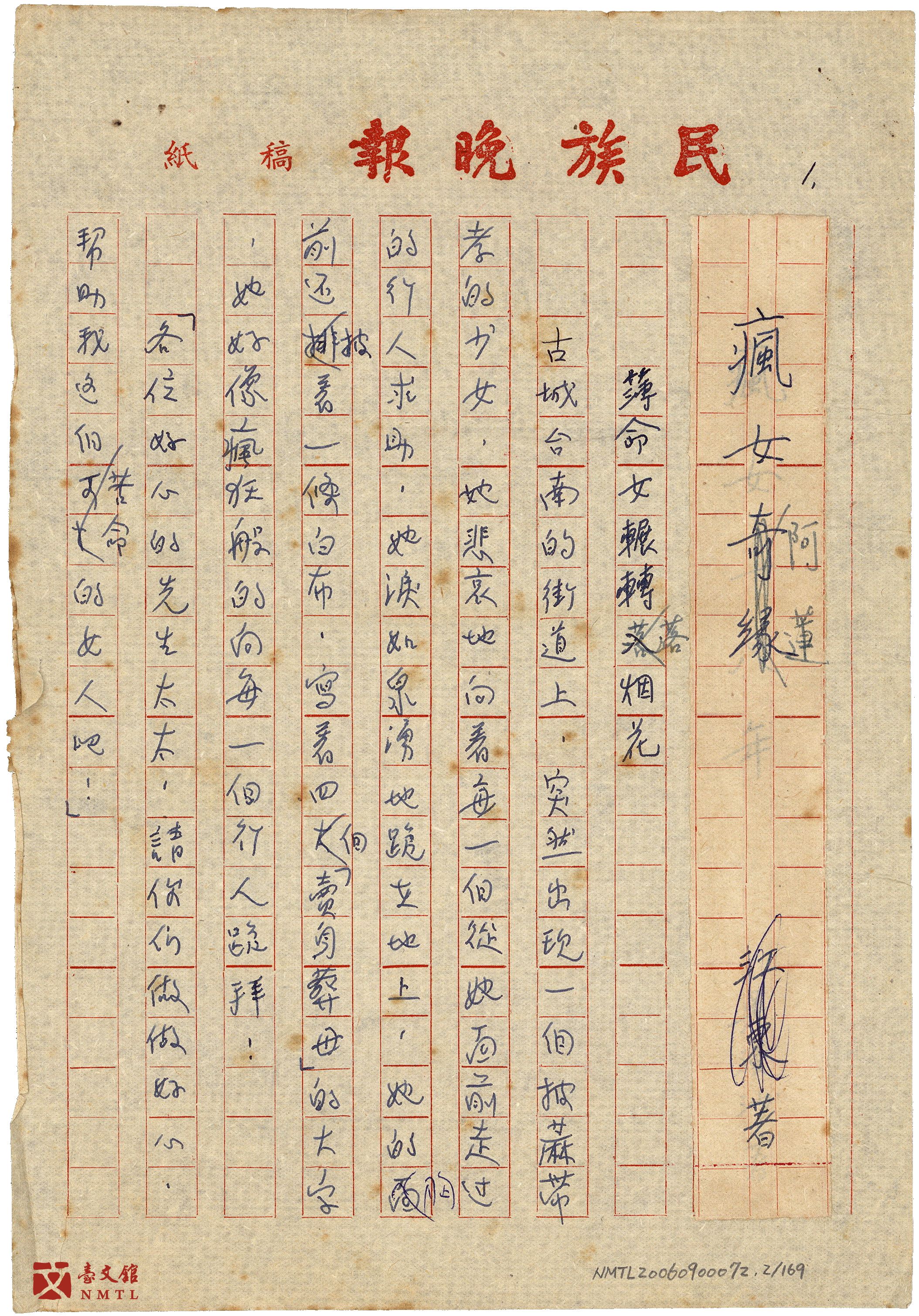
✺ "Crazy Woman Ah-Lien"
In this work by Wu Man-sha (1912-2005), the 18-year-old A-lien sold herself as a slave to give her mother a burial; yet she meets an ill-intentioned foster father, a mother-in-law that looks down on her background, and a mother and daughter that try to frame her. In the end, she has a mental breakdown and is locked into a wooden cage for 18 years.(Donated by Wu Ming-yueh/ Kept in National Museum of Taiwan Literature)
Depression – In Search of another Reality
After the end of the Second World War, the new generations of intellectuals in Taiwan were introduced to Existentialism and psychoanalysis. People's minds became a literary theme. New ways of writing reflect people's inner shadows. The melancholy in literature comes from questions about the meaning of life or the awkward feeling of not fitting in this world.
Writing about melancholy allows mental health problems to be seen by the public. Perhaps mental disorders are an intrinsic part of the "normal" society. Through probing into melancholy, literature exposes the space between normalcy and abnormality.
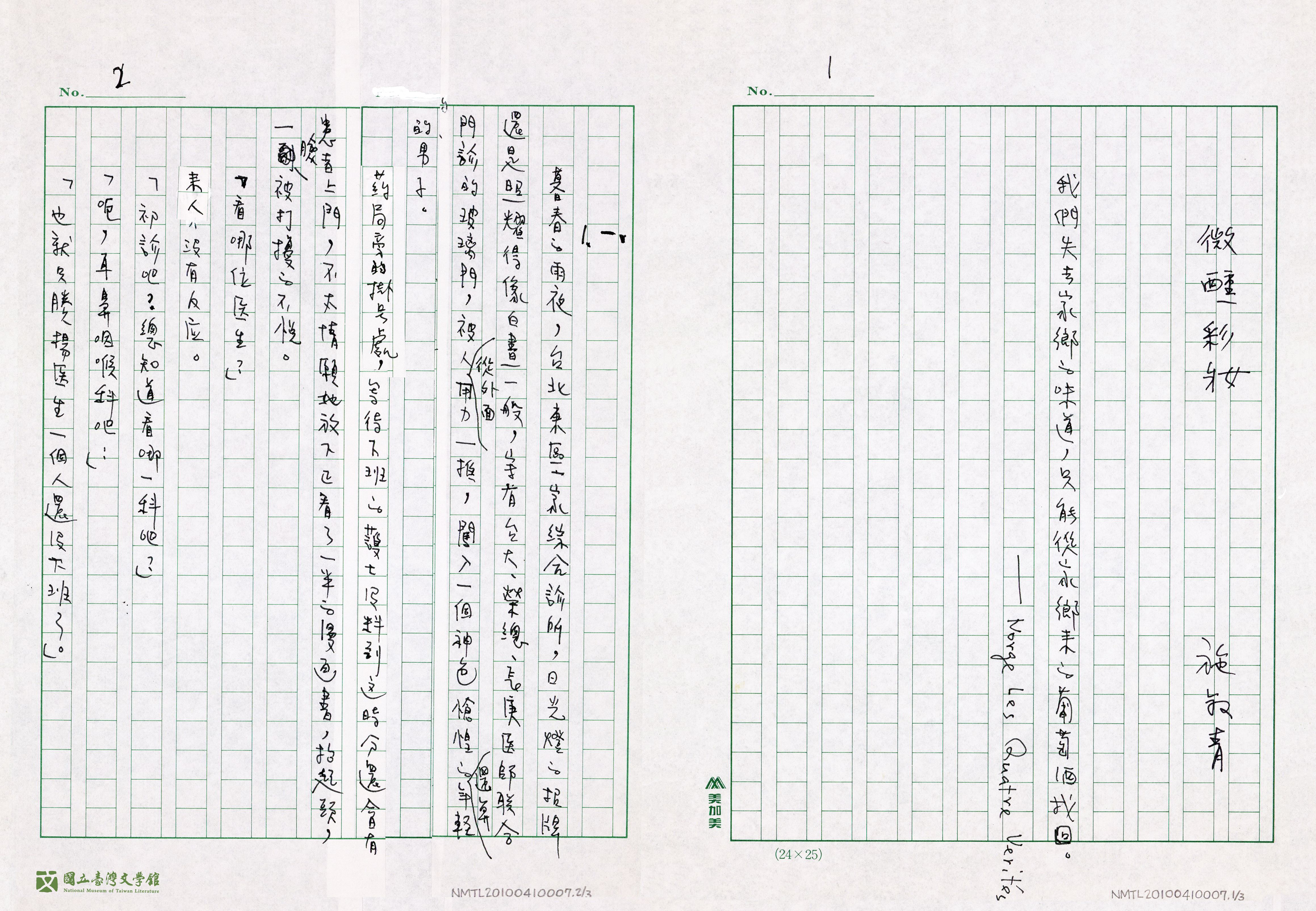
✺ TIPSY MAKE-UP
TIPSY MAKE-UP, written by Shih Shu-ching (1945–), describes the social phenomenon and chaos in Taiwan in the late 1990s due to its rapid economic growth. The protagonist, Lu Zhixiang, seeks treatment for his loss of smell and taste. The story later on unfolds the trend of wine that spread across Taiwan.(Donated by Shih Shu-ching/ Kept in National Museum of Taiwan Literature)
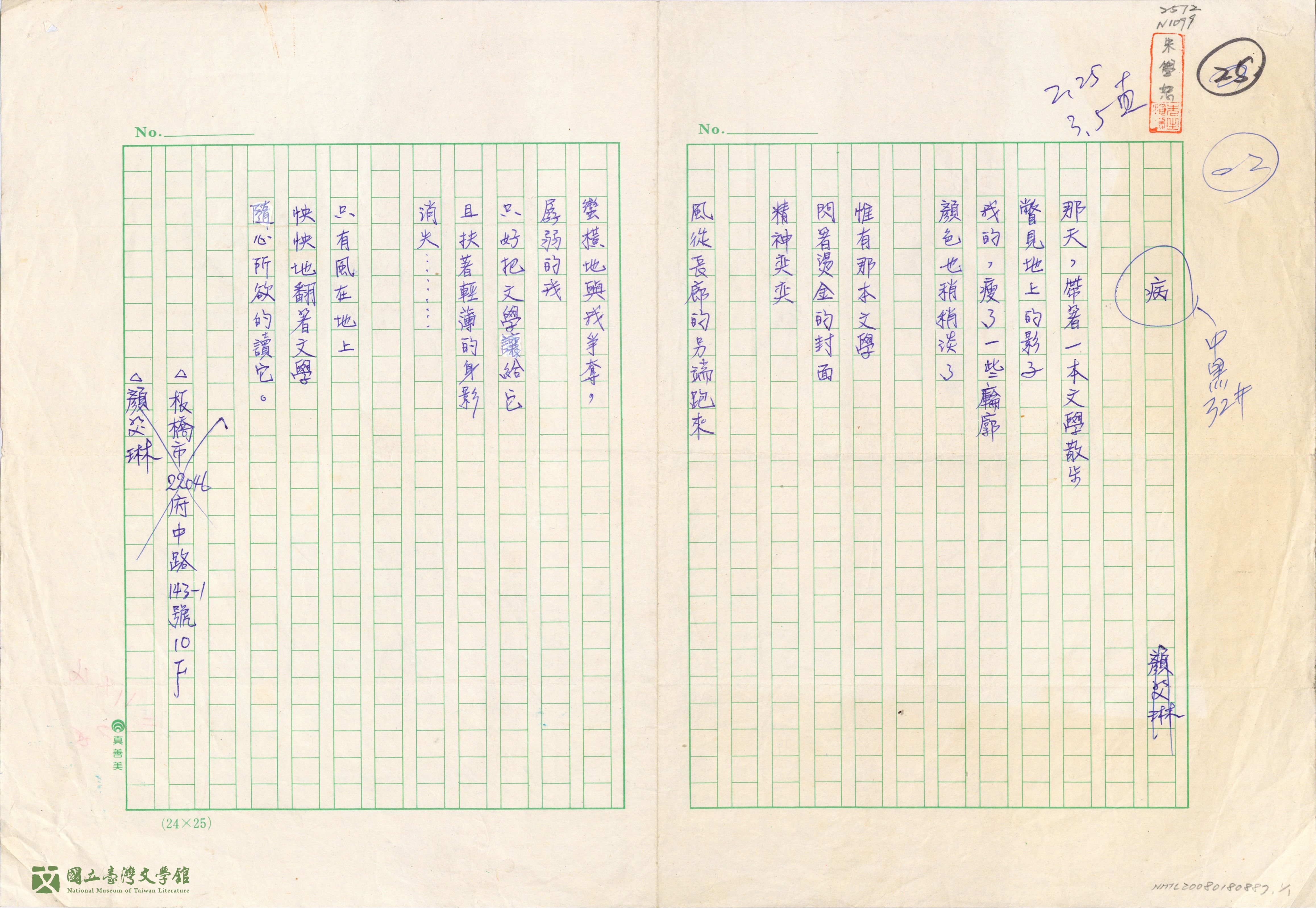
✺ "Sickness"
In this work by Yen Ai-lin (1968-), she keeps records of her being sick. Through looking at the shadow on the ground, she describes how emaciated and pale she becomes; she laments this moment when literature cannot fully soothe her mind.(Donated by Oceanic Poetry Magazine (founded by Chu Hsueh-shu)/ Kept in National Museum of Taiwan Literature)
Writing as Therapy to Quell the Inner Tempest
Literature allows patients to reveal themselves and break away from the abstruse medical terms describing mental disorders. By doing so, they become life experiences that truly exist. When faced with medicine, patients have to deal with the dilemma between suffering from their illnesses and changing themselves through accepting treatment.
Literature illustrates the unspeakable pain, out-of-touch feeling, and difficulties endured by patients with mental disorders. Literature also keeps records of the love and hate relationships between patients and their illnesses. During the process when one moves from being a patient under treatment to a proactive writer who writes down everything, illness emerges from the underlying streams of the mind; eventually, it will find symbiosis with life.

✺ Essays for the course on theories of Clinical Psychotherapy and handwritten notes
Qiu Miao-jin (1969-1995) studied at the Department of Psychology, National Taiwan University. This is her notes for the course "Theories of Clinical Psychotherapy;" the topic is "Introduction to Existential Psychotherapy."(Donated by Chiu Rui-chi/ Kept in National Museum of Taiwan Literature)

✺ Psychology Notes
The father of writer Ping Lu (1953-) was Lu Chun-yo, a renowned psychologist in Taiwan. Influenced by her father and her curiosity about people, Ping Lu also studied Psychology. This notebook contains her class notes when she was studying at the Department of Psychology of National Taiwan University.(Donated by Ping Lu/ Kept in National Museum of Taiwan Literature)

